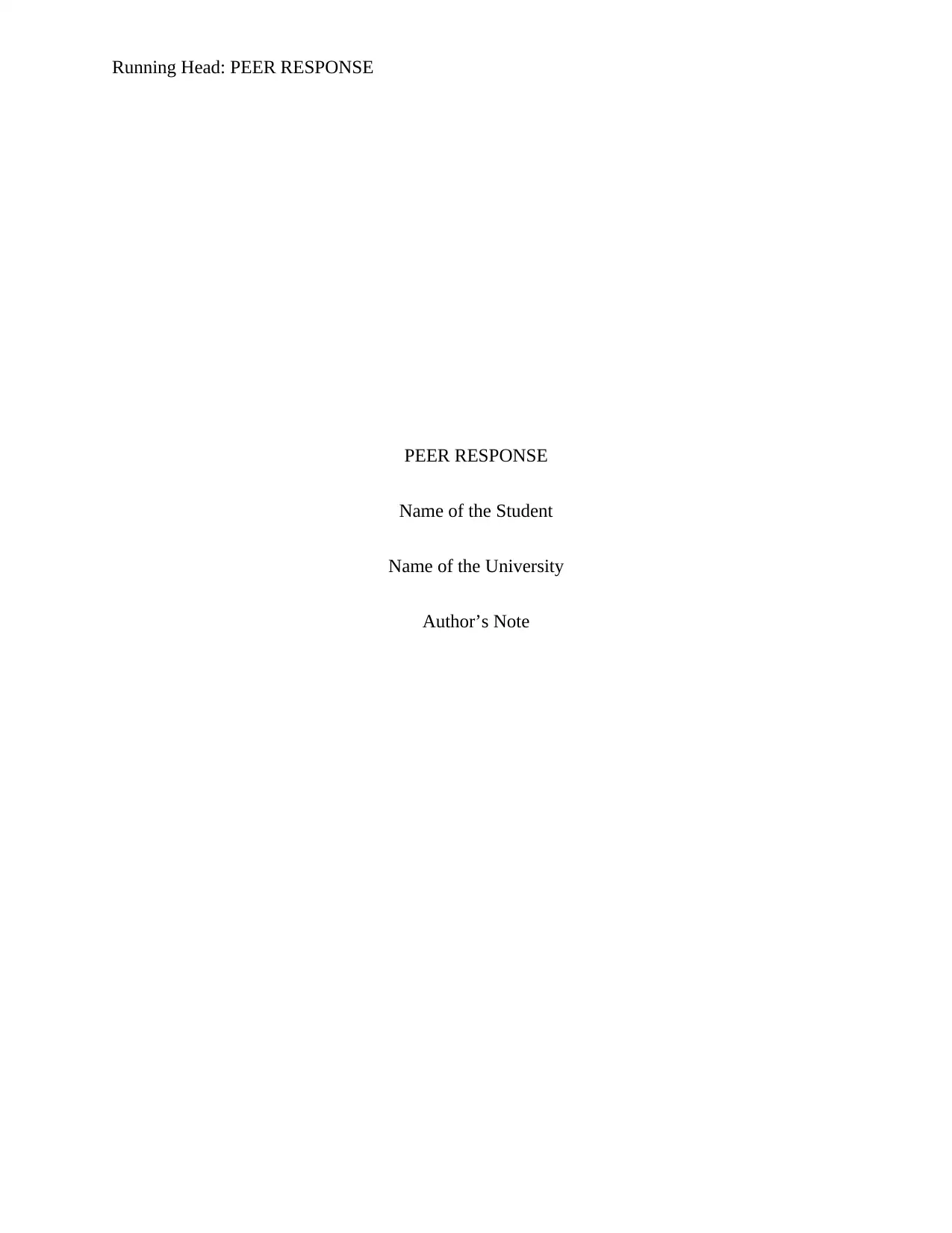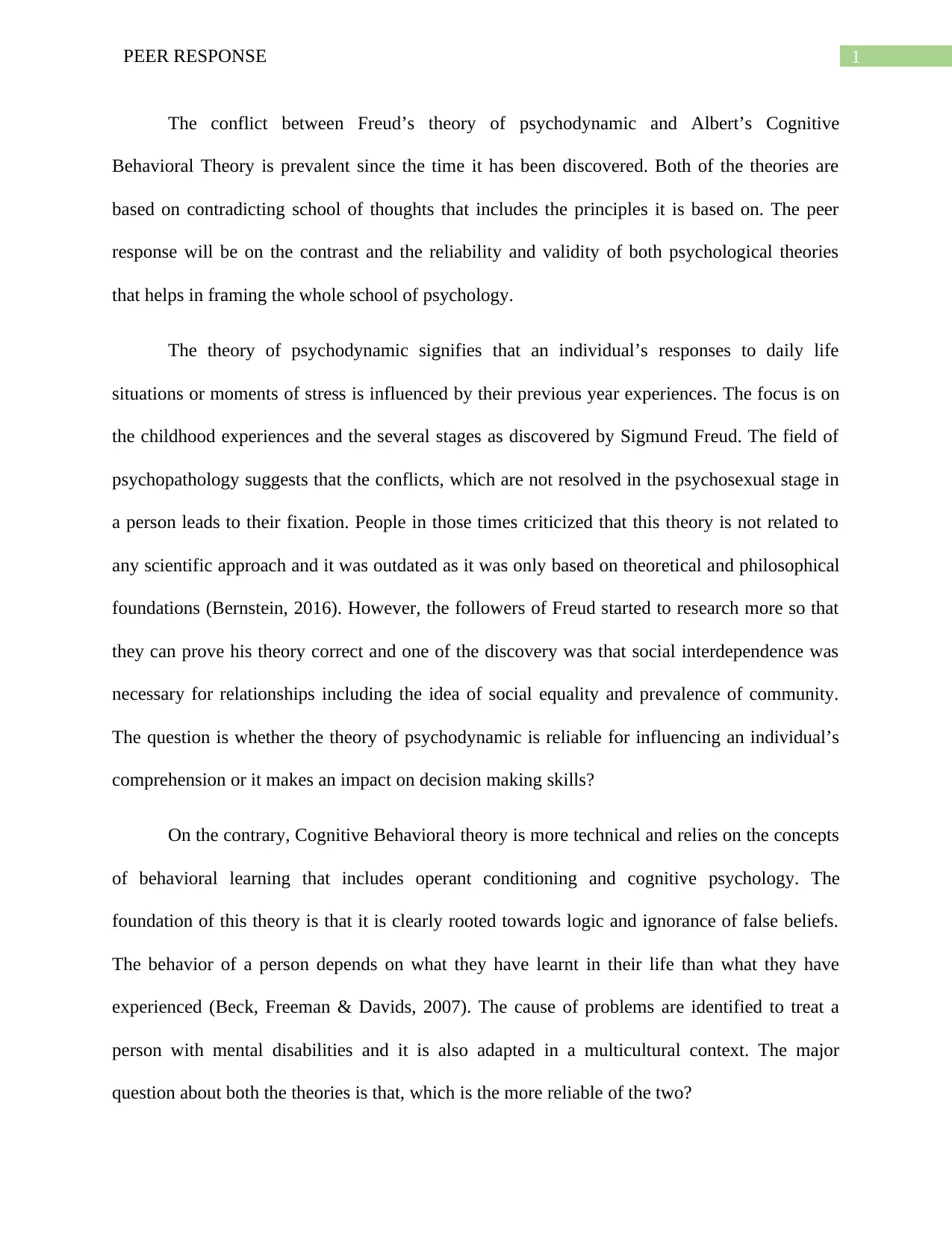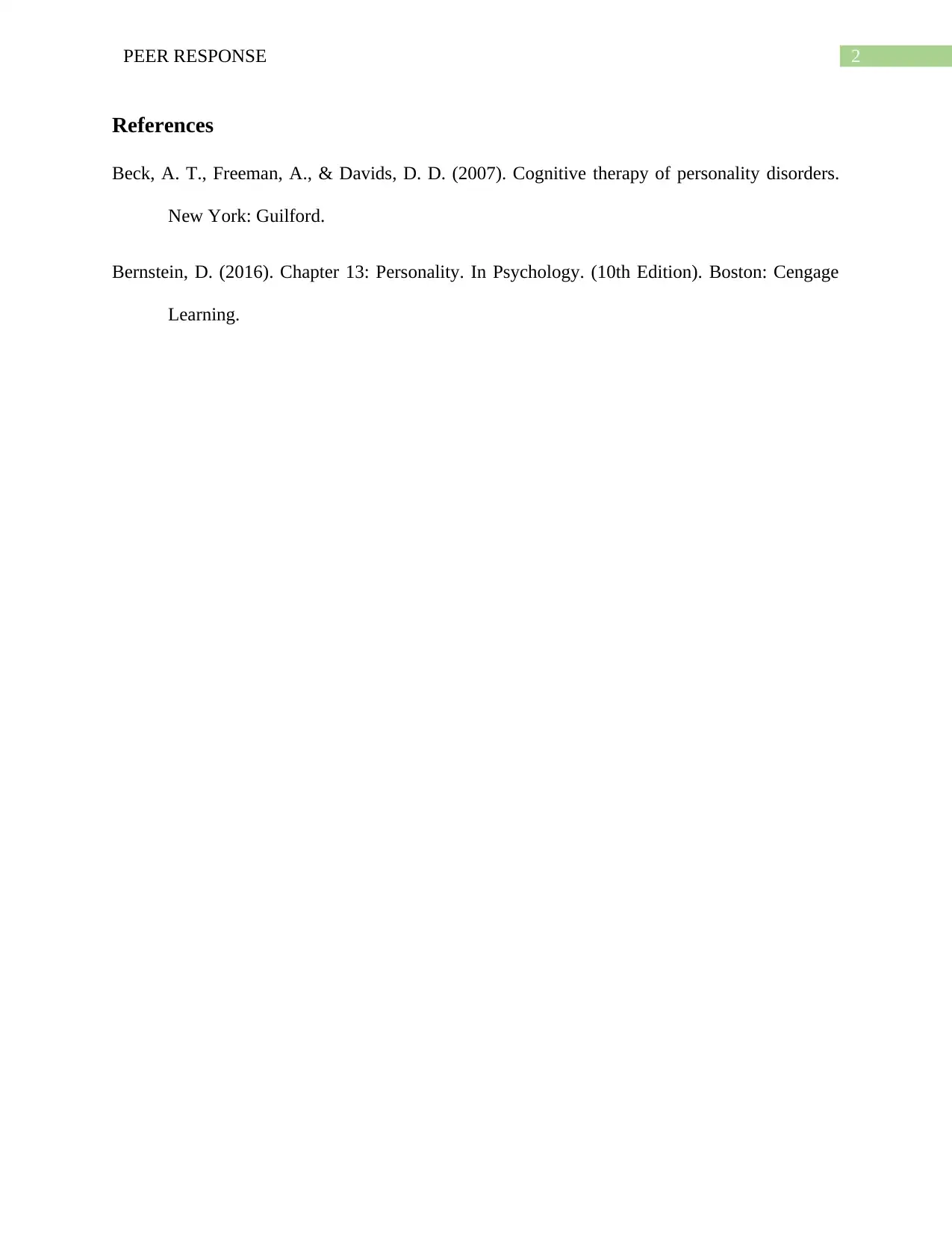Comparative Analysis: Psychodynamic and Cognitive Behavioral Theories
VerifiedAdded on 2022/08/12
|3
|442
|22
Report
AI Summary
This report presents a peer response that critically examines the psychodynamic and cognitive behavioral theories. It begins by highlighting the conflict between the two theories, with psychodynamic theory emphasizing the impact of childhood experiences and unconscious processes on behavior, as proposed by Freud. The report then contrasts this with the cognitive behavioral theory, which focuses on learned behaviors and cognitive processes. The report delves into the key principles of each theory, including the role of the unconscious and the stages of psychosexual development in psychodynamic theory, and the application of operant conditioning and cognitive psychology in cognitive behavioral theory. The report also discusses the reliability and validity of each theory, considering criticisms and advancements in the field. Furthermore, the report references key literature, including works by Beck, Freeman, and Davids, and Bernstein, to support the analysis of the two theories and their relevance in understanding human behavior and mental health.
1 out of 3








![[object Object]](/_next/static/media/star-bottom.7253800d.svg)